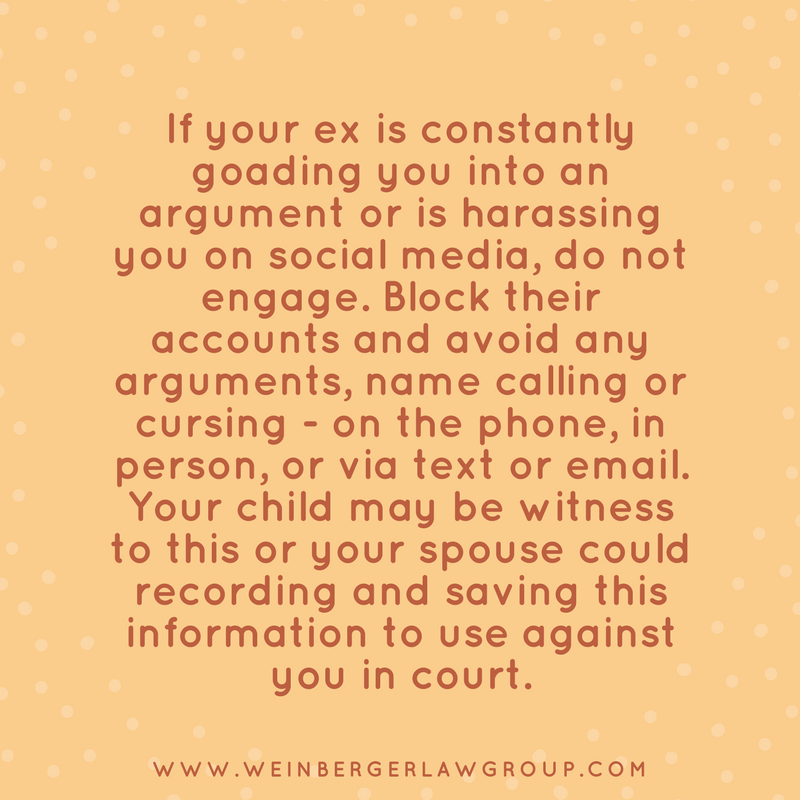How To Keep Details Of Your Divorce From Reaching Your Kids’ Ears

When you are divorcing and have children, you want to do everything you can to minimize their stress and ease this time of transition for your family. This starts with shielding your children from conflict that may still be running high between you and your ex.
Are your children being dragged into the middle? Here are 7 steps to keep the adults-only details of your divorce private and off your children’s radar.
Keep your story off social media: Posting negative comments about your ex and your relationship on Facebook, Instagram or any other social media platform can have terrible consequences. Even if your children do not have social media accounts, their friends might and their parents certainly may. Children repeat what they see and hear and your child’s friends may certainly share with them what you have posted.
Don’t badmouth your ex to your children or in front of your children: As angry and as hurt as you may be, you must avoid talking badly about your child’s other parent to them. As stated earlier, you do not want to have your child feeling scared or insecure and you certainly do not want to engage in parental alienation, whether intentional or not. Avoid having “adult” conversations about your marriage, divorce or your ex with others in the presence of your children. Even if they don’t understand the content, they certainly can pick up on tone and emotion.
Do not get baited by your ex: If you ex is constantly trying to goad you into a fight or an argument or is harassing you on your social media, do not engage. Block them from any social media accounts and avoid any arguments, name calling or cursing on the phone, via text, email or in person. Your child may be witness to this or your spouse could record or save texts or emails to attempt to use against you in court.
Politely decline to offer details to friends or family: Even if they have good intentions, certain friends or family members may be fishing for information. Do not give anyone ammunition that could be used against you later or that could be repeated to your children in an attempt to alienate you. Confide in your most trusted allies or, if needed, a therapist specializing in family reorganization, separation and divorce.
Include a “non-disparagement” clause in your marital settlement agreement: Your and your spouse can agree to terms where both of you agree to not disparage, demean or in any walk talk badly about the other to anyone, including on social media. Some couples call for specific limitations on communications, such as communication regarding only the kids, others agree to a complete blackout on discussions on social media. If either violates these terms, the order can be enforced by the judge and sanctions such as loss of parenting time or fines can be ordered.
Avoid litigation: Courtrooms are open and everything said in court is recorded and public record. Having long, bitter and drawn-out court battles leaves a record that anyone can access. Instead opt for negotiation, mediation or perhaps a collaborative divorce, all of which allow you and your spouse to work through your issues, either on your own or with the help of a mediator or attorneys trained in collaborative divorce. This way, you both control what is in your complaint for divorce and ultimately what is in your marital settlement agreement.
Avoid your kids acting as your confidant: While you always want to have an open and honest relationship with your children, it is not in their best interests to serve as your sounding board for every emotion you may be experiencing. They are simply not emotionally equipped to take on this role. Do not discuss adult situations with children. Instead, find a trusted friend, family member or therapist who can offer you a safe space to express your negative or positive emotions without repercussions.
Safeguard your own future! No matter what stage you are at in your divorce, strongly consider seeking out the advice and services of a qualified and experienced family law attorney or mediator in your area. Getting proper guidance from a divorce attorney who can maintain emotional distance while dealing directly with your spouse or their attorney is invaluable and will help keep you and your emotions in check.
If you are interested in learning more about divorce or any other family law issue, please contact us today to schedule your initial consultation with one of our qualified and experienced attorneys or certified mediators.
Read More:
7 Secrets for a Child-Centered Divorce



